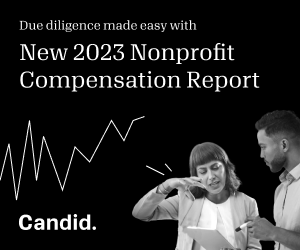Setting meaningful racial equity resolutions for 2023 and beyond

As those of us in the philanthropic sector reflect on the past year and set resolutions for 2023, we at Trust for Learning are even more committed and explicit about our responsibility to advance racial equity. We have spent the past several years incorporating anti-racist practices into our work on a project-by-project basis. In engaging with the ongoing nationwide movement for racial justice, we have learned a lot, celebrated measurable progress, and made mistakes.
We are part of a growing movement of investors who recognize that innovation in early childhood care and education is a powerful vehicle to prevent and close racialized gaps from the very first days of life. The science behind this strategy is clear: every young child has enormous potential, and high-quality early learning environments, whether at home, in child care, or in preK, set children up for lifelong success. Yet Black, Indigenous, Hispanic/Latinx, immigrant, and multilingual children are less likely to have access to the high-quality programs available to their white and well-resourced peers. Ten thousand babies will be born in the United States today, and every one of them should experience nurturing, affirming early learning environments that help them thrive. Until public policy levels the playing field, it’s up to philanthropic funders to drive innovation and equity in this space.
In pursuit of this goal, we must make sure racial equity is both the path and the destination by transforming our grantmaking, staffing, and approaches to policy and programming.
As more funders turn their attention to this critical work, we have a lot of momentum to celebrate but also a long way to go. Here are four ways investors can make racial equity an unwavering pillar of their philanthropy in the new year and beyond.
Take proactive steps to shift power in both philanthropy and in policy.
Beyond the dollars we give, funders have enormous power. Ask yourself: How are we using the power we have while also amplifying organizations that have historically received less attention and financial support? At Trust for Learning, we have shifted to a grantmaking strategy that includes review and scoring by compensated external experts. We recruit these experts for their knowledge and skills while also ensuring that the majority of reviewers identify as people of color. We have also changed our governance structure for our board of advisors, and we see other funders rewriting their charters, governance structures, and grantmaking procedures to start to shift power in the sector.
Recognize your organization’s responsibility to right the wrongs of the past.
The term “reparations” is controversial and can shut down conversations as often as it inspires them. But the root of the word “reparations” is “repair”—to mend something that’s broken, a goal that all charitable organizations presumably share. So what would it mean to adopt a reparative approach to philanthropy? Such approaches begin by publicly acknowledging past harms and taking active steps to remedy them. For example, an organization could choose to give to white and Black-led organizations based on population, but would that giving really be proportional to the historical harms done to Black communities and the accumulated effects of preferential funding of white-led organizations for decades? If racial equity is a true priority, it should be an explicit part of our annual budget, and we should commit to equitable funding of Black-led and Tribal community-led organizations along with other communities who have been and remain disenfranchised by status quo philanthropic practice.
Consider the individual and systemic ways racism harms communities and fund accordingly.
One of Trust for Learning’s recent projects gave nine grantee partners funds to support more equitable training programs for low-income educators and teachers of color. The grants also helped our partners fold anti-racist approaches into existing teacher training programs. In this effort, we combined strategies that we know support individual educators with strategies that change an entire curriculum for thousands of educators in the coming years. Foundations aiming to advance racial equity should adopt similarly multilayered strategies. For some funders, this means stretching to consider how to fund systemic, policy, or regulatory change.
Be willing to learn, unlearn, and challenge yourself.
Most funders have probably attended a racial equity seminar or webinar or read a book about how to be an anti-racist in their own lives. But anti-racism is lifelong, organization-wide work. In 2023, let us commit to racial equity as an ongoing practice within our organizations at every level. Let us ask ourselves: How does racial equity inform our hiring process, from the job description to the interview rubric? How does racial equity inform our grantmaking, from the application to reporting requirements? How does racial equity inform our strategic efforts, from communications to coalition building with other funders or direct work to influence policy?
While we are heartened at some of the progress and efforts in the sector, this is only the beginning of philanthropy’s transformation toward racial equity and justice.
Ellen Roche is chief media and philanthropy officer at Trust for Learning, a philanthropic partnership that works to expand ideal learning environments for all young children. Iheoma U. Iruka is a research professor of public policy at the University of North Carolina at Chapel Hill and a member of Trust for Learning’s Board of Advisors.





